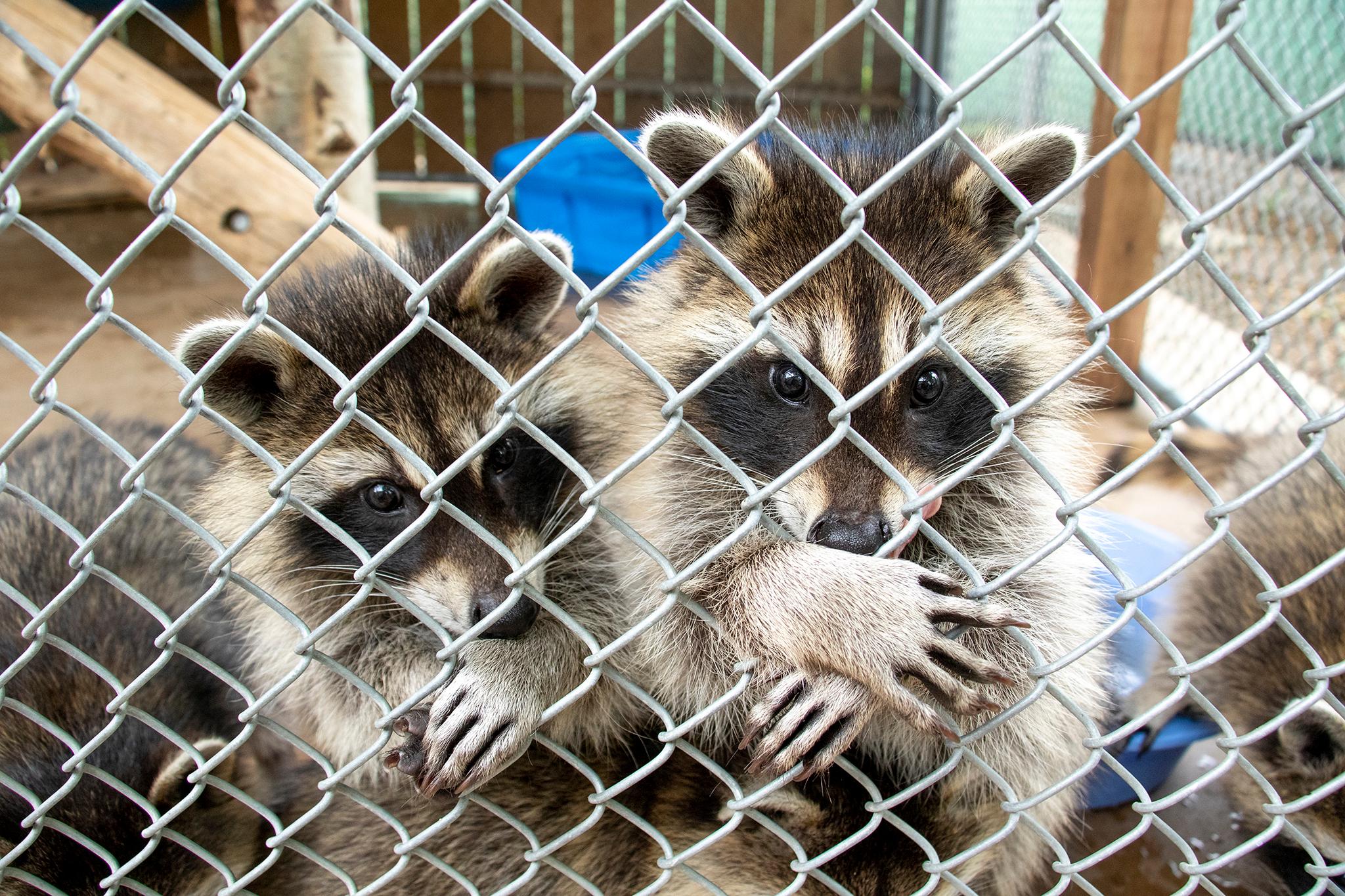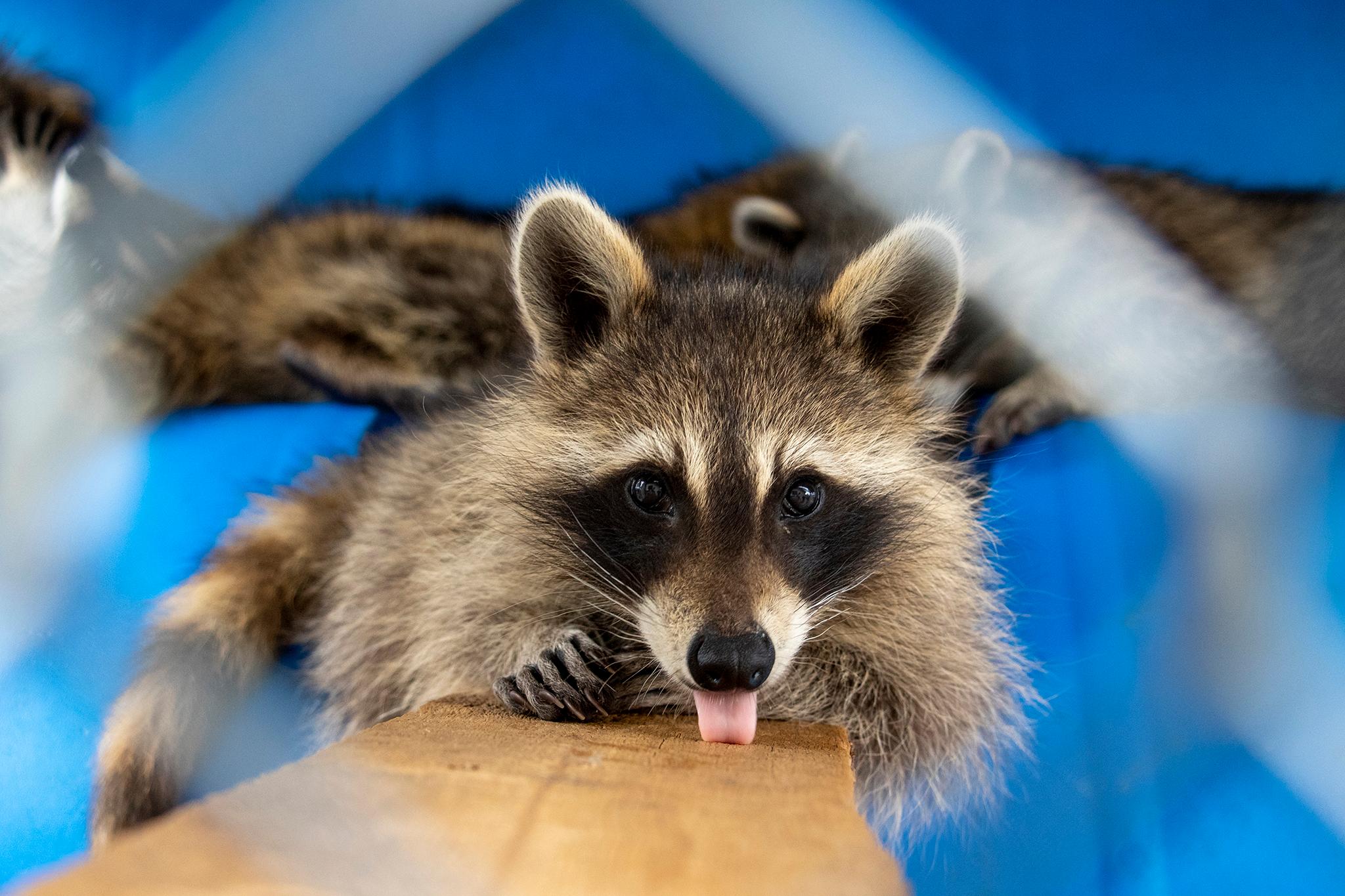Toward the end of summer, one of my newest neighbors asked if my family knew we had a raccoon living with us.
Raccoons haven't been a problem for us, even when backyard chickens -- which raccoons gleefully maul -- roamed the yard of our home, in Northeast Park Hill. Meanwhile, we've seen our friends' hen houses turned into slasher fests from ringtails. Lucky for our birds, they died of old age long before a raccoon allegedly called our home its own and would have slaughtered them in cold blood.
Our neighbor noticed the raccoon early one morning, when she saw one eating bugs on her lawn. She caught the action on her Amazon Ring surveillance camera. She turned on the sprinkler, and the animal scurried over the fence and into our backyard.
The neighbor played us the footage from her iPhone. A smoking gun, she thought: That animal had obviously been calling our home, home.
And who could prove it didn't live at our house? We don't have surveillance cameras. In fact, the last time a thief tried to steal a package from our porch, I caught him sneakily returning it after he discovered it was a tower of gender theory and parenting books. Apparently we're too boring to be robbed, so I apologized.
Though we had nothing on tape to prove the raccoon wasn't ours, we thought it was improbable the animal lived with us. Raccoons are more than capable of climbing multiple fences and traveling through urban areas and likely don't understand the notion of property lines.
Yet a certain member of my family has an ill-founded belief that raccoons have more-or-less opposable thumbs and can do so much more than just knock over trash cans, upend pantries and borough in attics. They might be crafty enough to hack bank accounts or commit arson, too.
So we set out to investigate. We scoured the attic, cut back brush, looked everywhere for a sign of a raccoon in or near our home.
No raccoon. No scat. Nothing.
Among our neighbors, the mystery of where that raccoon has made its home lives on.
There's more than one raccoon lumbering around Park Hill.
In October, as my kid and I were leaving the Titwrench Music Festival at the City Park Pavilion, a family of raccoons climbed down from a tree and walked across the path. A biker zipped by, and the family rushed off. One day as I rode the 43 bus in November, a woman in the seat behind me lit into the creatures, saying the only thing she feared more than raccoons was God himself.
Raccoons aren't the only wild animals in Park Hill. There've been recent sightings of coyote, deer and an alleged mountain lion at the embattled Park Hill Golf Course (some argue it was just a fat cat or a homely golden retriever).
Raccoon sightings grace neighborhood social media pages. According to some of the posts, the animals have been making appearances in Ring camera footage. That footage gets shared, along with posts about how to prevent raccoons -- even trap them.

Are there more raccoons than before, as some people claim?
Colorado Parks and Wildlife, which responds to calls about raccoons that might endanger people, has not noticed an uptick in activity
"Raccoons are expected to occupy Denver and the metro area," said the state agency's spokesperson, Jason Clay. "It is easy for them to make a living in an urban setting. Our wildlife officer out of Denver said it does not seem like population numbers have increased over time.
"We do not do population surveys for raccoons like we do for certain big game species like deer," he added.
Colorado Parks and Wildlife has plenty of tips about ways to keep raccoons from becoming roommates.
Back in the day, the animals only lived along riparian corridors on the eastern plains, explained Clay.
"Raccoons have been greatly helped by permanent human settlement, development of irrigated agriculture, planting of shelterbelts and ornamental shrubs and trees, and garbage," he said.
The creatures will eat whatever they can get their not-so-opposable thumbs on, like "fruits, carrion, nestling birds and eggs, rodents, roosting bats, insects, crayfish and mollusks," Clay noted.
Do you grow corn and melons? If you've got a raccoon, you won't have that produce for long. (In more proof that we are raccoon free, my family's corn and melons did better than ever this year.)
"The only real solution is to remove anything that might be attracting them," Clay noted. "Try to determine why the raccoons are in your yard or attic. Are they finding food, water and shelter? Again, whatever is attracting them must be removed or cleaned up."
One way to get raccoons to move on is to crank up the radio. The agency recommends talk radio or rock stations. Keep the creatures awake all day, and they might very well go packing along with their kin for some rest.
If you have a hole in the attic or an uncapped chimney, screen it or cap it so the animals don't build nests. Chop down overhanging branches that they could use to climb into your home and put 18-inch cylinders of sheet metal around tree trunks three feet above the ground. Make sure your garbage is locked up, and if you can, store it in a shed or garage in an air-tight container.
Maybe there are just too many Ring cameras?
"Amazon's Ring is the largest civilian surveillance network the US has ever seen," explained Lauren Bridges in The Guardian.
In Park Hill, neighbors are catching people snatching bikes, snooping through windows and ripping off packages -- all of which can be turned over to law enforcement. So it's not exactly surprising animals are being watched, too.
We reached out to the Denver Police Department to find out how many Ring cameras are in use in the area and how many people are participating in the company's app and social network, Neighbors by Ring. DPD has partnered with Ring since 2019, collecting footage residents want to share of a crime.
"DPD doesn't know how many Ring cameras there are in Denver or how many Neighbors By Ring members reside within the City," emailed the department's Interim Director of Communications Doug Schepman. "And the cameras aren't something we can use operationally, it's just a means by which people can share video with us if they so choose."
Emma Daniels, a spokesperson for Ring, declined to share Denver-specific data.
Bridges herself has had no luck accessing such numbers, she wrote Denverite.
"There is no way of knowing how many cameras Ring have in any one area," she explained. "A few years ago the Washington Post did a piece trying to guess how many were in operation in a small area of Washington DC based on how many people were posting on Neighbors, but Amazon and Ring keep a very tight control on the number or cameras and also the sales figures for Ring (these are all wrapped up in Amazon's financials).
"I and others have tried to get sales figures/camera numbers on numerous occasions to no avail," she added. "One estimate has them in the hundreds of millions across the US."
In marketing materials, Amazon celebrates having "millions" nationwide.
But the device has raised privacy concerns from researchers like Bridges and even among Amazon employees. Max Eliaser, a software engineer for Amazon, blasted Ring on the website Amazon Employees 4 Climate Justice.
"The deployment of connected home security cameras that allow footage to be queried centrally are simply not compatible with a free society," Eliaser wrote. "The privacy issues are not fixable with regulation and there is no balance that can be struck. Ring should be shut down immediately and not brought back."
Then maybe raccoons could wander in peace again.











